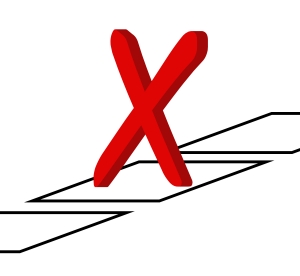Freedom?

It seems that every year we need a gimmick. For the BBC, 2014 is apparently a celebration of ‘freedom’.
My uncle, when in regularly cantankerous mood, vouchsafed the following:
“I don’t think we’re more free. The only freedoms I see us having are the freedoms to consume. To buy buy buy – that’s the only freedom we’ve got now.”
And, much as I may hate to say it, and while I disagree in many different ways and on different levels, he has a shimmer of a point.
First thing to say: my thoughts here are about life in the UK as I experience it. I think it can be said with absolute certainty that there are large swathes of the world which simply are not free, and where the dignity of the individual is not respected. Across the globe there are peoples repressed, abused and actively assaulted for reasons of race, creed, gender, religion or for simply voicing a protest, and until that changes humanity cannot hold its head high. These truths are as the American fathers once put it, self-evident.
In the UK, however, we appear to be free. Therefore the debate on my own country, and its laws, is something I am both in a better position to wade in on, and potentially convoluted in different ways.
Let’s take firstly, a big source of ‘freedom’ – the internet. The UK is a massively technologically engaged society, with information available at every corner. The internet is potentially a source of wonderful debate, a great melting pot for minds and opinions, where every aspect of life may be discussed, studied and improved upon. However, certain limitations lie beneath this that are, to my mind, insidious.
Firstly: that a great deal of the time the internet is dominated not by reasoned debate, but by shouty shouty people shouting at each other.
Secondly: that this tool of potential learning is awash, is drowning in misinformation, celebrity tattle, selfies and facebook movies, in trivia and bickering, social networking and gossip. None of which is bad per se – I’m a fan of social media and sites such as facebook and twitter can be and have been used to give voices to the voiceless in repressed places across the world. However, any writer who’s had the words ‘digital marketting’ foisted upon them can declare with total frankness that one of the great problems of the internet is not finding the answers you seek, but knowing where to find them. With so much misinformation out there (see also: shouty shouty people) we risk information becoming not about truth, but about what the largest majority of loud people like to call the truth.
Thirdly: while in theory there may be more information available, increasingly how it is presented makes it hard to find. In Venezuela there have been riots in the streets, in Syria civil war still rages, Ukraine has teetered in chaos for weeks, and what are the headlines on domestic news websites? Flooding in Surrey. Skiing at the Olympics. A thing said by someone vaguely famous about someone else. A snub at an EU conference. The internet, and indeed the modern media as a whole – newsprint, TV, radio – guide us to the news that someone else thinks is important, and in doing so shapes our views of the world and our very thoughts.
Finally: the internet is a tool for massive illegal activity. Drug dealing, pornography, terrorism etc.. In uniting the world, we united all of it, and I would argue that any libertarian who says that child pornography is the price we pay for the digital age, is taking a lazy path out of a devastatingly painful and difficult debate. However, laws to control the internet frequently extend beyond what is ‘necessary’ (difficult word) to protect society, and start to impinge on freedom. In the UK, recent attempts by parliament to impose limits on internet service providers in areas of pornography were not only feebly conceived and terribly enforced, but also imposed search limits on sites with advice on sexual health for teenagers and the vulnerable. Moreover, as recent scandals in America show, the internet is patrolled constantly by the great ghouls of information-gathering organisations, and while I do not fear the NSA or GCHQ as why should I – they are ultimately there to protect me – I do fear the arrogance of an institution which, so so easily, can re-define what ‘protection’ means. Today GCHQ’s mission is to guard the UK against terrorism and external threats, and I thank it. Tomorrow, who’s to say that government policy will not name me a threat? My freedom then, my right to privacy and my right to seek information for myself, is a thread-like intangible thing, which can be deprived at the click of a mouse, and I barely even know it.
And what about the law as it applies in the streets? I am a huge fan of the Metropolitan Police, for all that there are those parts of it that are, I’m sure, as incompetent, bumbling and crass as any organisation anywhere in the world will have its share of inadequacies. At the end of the day, coppers are only human and I do not demand perfection of humanity, however much I’d like it to be there. However – laws to protect me can again tip so easily into containing me. Laws to prevent protests outside the Houses of Parliament seem to me like an obscene intrusion into the freedom of the ordinary citizen; gagging laws currently going through the House to limit the power of petitioning organisations like 38 Degrees; laws of arrest that permit people to be held for ever-increasing periods of time, to be stopped and searched on a whim – at every turn the power of our government to limit what we say and how we say it, and to curtail us ‘for our own protection’ seem to increase.
And when we do protest? Two million people marched against the Iraq War to no avail. The Liberal Democrat Party entered into a coalition four years ago with the Conservative Party, pledging to prevent tuition fee rises, protect the NHS, defend the poor – and as soon as they were in power they broke every promise they had. Our government are ideologues, our opposition are limp, and every other policy seems not about protecting people, but retaining power. Our greatest act of protest is to vote, but with the media so feeble in debate and politicians so reluctant to express any idea that might actually encourage discussion in the country – fear discussion! – it increasingly looks like a choice between this power-hungry loon or that power-hungry loon. Some semblance of proportional representation might have shifted this, but alas, the ‘yes’ campaign when that referendum came about didn’t know how to frame a debate, and the measure vanished with a sigh.
What other freedoms? The freedom to travel, the freedom to learn, the freedom to receive good healthcare, the freedom to live free of fear… well, sure, we’ve potentially got all these freedoms in this country but I’d argue that they are largely freedoms of the rich. Train travel throughout the UK is exorbitant; education is under siege, and the government equates ‘freedom’ in healthcare with ‘the ability to choose to go private’. In other words – if you can buy freedom, you can have it. But if you can’t, then your life is hugely curtailed. This is arguably no more and no less than the logical consequence of capitalism, but the counter to that is that the gap between rich and poor seems to grow ever larger, and thus the freedom that money can buy is limited more and more to the few. We have a freedom to spend; and even that in this climate is curtailed.
On freedom to spend – there are now fewer than 2000 independent bookshops in the whole UK. This is a shockingly low number. Waterstones is in some trouble, and if it folds, amazon will essentially hold a monopoly on the book market. (See: previous rants on this theme.) This is simply an example from within my industry, but it is fairly indicative of a larger trend. It is easier than ever to spend money, but hard to spend it on anything which isn’t a mass-produced brand or monopoly chain, which can dictate not only what we consume, but how much we pay for the privilege, regardless of market forces. There are reasons why monopolies are illegal.
Now – all this said, let’s remember the good news. Gender equality, while it continues to be a battle, improves. Sexual discrimination declines, and ideas and information can be spread. Journalists are not imprisoned for speaking their minds (although the libel laws in this country again seem to give a great deal of power to those who can afford to use them) and while the police are a long way from a blameless record, habeas corpus still holds good and the law courts protect the people from tyranny. We are, in this country, in many ways blessed. But our freedom is a delicate thing that is constantly pressured, and worse – our thoughts, our expectations, our understanding of what freedom means, and the value of this idea – that seems to be the most precious and precarious thing of all.





